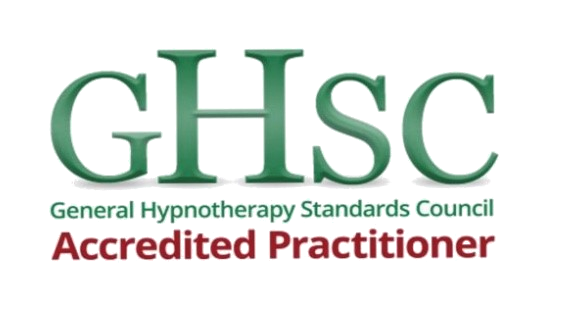CBT Treatment for Bipolar Disorder – in London, across the UK and Online Via Video link
We provide effective CBT treatment for bipolar disorder, previously known as manic depression, from our clinics across the UK and online via video-link. Cognitive Behavioural Therapy is the recommended treatment of choice for bipolar disorder and the published evidence shows that it is more effective than other forms of therapy when combined with prescribed medication. We work on an integrated basis with our in-house Consultant Psychiatrist to ensure continuity between medication and therapy approaches. To talk to a CBT expert about treatment for your bipolar disorder symptoms, call 01732 808626 or email info@thinkcbt.com.
What is Bipolar Disorder?
Bipolar Disorder is an enduring psychological health problem that can cause significant disruption and emotional distress in the individual’s personal and work life. Bipolar Disorder is characterised by periods of depression and mania, with periods of normalised mood in between.
During the depressive phase, the individual may experience many of the symptoms of low mood, hopelessness and loss of pleasure reported by people with Major Depressive Disorder. Major Depressive episodes last for a minimum of two weeks and often lead to withdrawal and an increase in suicidal thoughts. In very severe cases, this can lead to psychosis and delusional behaviour.
Mania is the flip-side of depression and varies in intensity and duration. Symptoms include feeling high, having lots of energy, little need for sleep, racing thoughts, talking fast, difficulty focusing on tasks, loss of judgement, impulsive behaviour with feelings of frustration or irritability. In severe episodes, this can lead to grandiose and delusional behaviour where the individual loses touch with reality. Mania is present when the manic episode lasts for more than a week. When the duration is four days or less, the term hypomania is applied. In some cases, this can lead to improved functioning and rarely progresses to a full manic episode.
This distinction between manic versus hypomanic episodes is the defining factor between Bipolar I and Bipolar II respectively.
Bipolar Disorder Assessment
The following online assessment known as the Mood Disorder Questionnaire (MDQ) can be used as a screening assessment for bipolar disorder. You can download a copy of your results and share this information with your GP or another psychological health professional.
Cyclothymic Disorder
This is a milder form of bipolar disorder. The person experiences chronic mood swings over at least two years, involving periods of hypomania (a mild to moderate level of mania) and periods of depression. The condition is punctuated by short periods of normality, lasting no more than two months. The duration of the symptoms is shorter, less severe and not as regular as bipolar disorder or major depression.
Mixed Features Bipolar
This involves a simultaneous occurrence of both ends of the mood polarities. It involves high energy, sleeplessness and impulsivity, at the same time as feelings of hopelessness and despair. This mixed presentation is often associated with higher levels of risk.
Bipolar disorder is often common within families and can be triggered by stress and conflict. It is often misdiagnosed as other psychological conditions such as depression, ADHD and psychosis. Diagnosis depends on an episode of mania and the marked swing or shift between high and low moods.
How is Bipolar Disorder Treated?
The normal treatment process for Bipolar Disorder involves a combination of drug therapy and Cognitive Behavioural Therapy. Drug therapy includes mood stabilisers such as Lithium, anti-convulsant medications such as Vaoproate or Carbamazopine and anti-psychotic medications such as Aripiprazole, Olanzopine and Quetiapine.
Cognitive Behavioural Therapy and, in particular a special form of CBT known as, Dialectical Behaviour Therapy has been found to be helpful in managing mood regulation and promoting balanced behavioural reactions.
The initial stage of therapy involves socialisation to the CBT model, understanding the links between thoughts, behaviours, mood and physiological sensations; setting goals and agreeing values to guide the process. Therapy involves understanding and identifying triggers, actively practicing mood regulation techniques such as defusion, attention training, mindfulness and applied relaxation training.
Cognitive change work is used to identify hyper-positive thinking patterns such as “I can do no wrong” and impulsivity patterns such as “I need it now”. The client is encouraged to slow down, plan ahead, practice conscious awareness skills and delay immediate gratification impulses.
Behavioural tools for depressed mood states focus on improving functional behaviour in the absence of motivation. This involves a process known as Behavioural Activation, where the client is encouraged to plan ahead and prepare for low mood periods with established relapse and recovery plans.
Finally, the CBT process involves an assessment of environmental factors that trigger or maintain extreme mood shifts. The client is encouraged to make practical changes to their environment to maintain a healthier balance. Sleep hygiene and time spent in bed is a key part of this. It is usually helpful to engage wider family or friends in therapy to support the client in the identification of pre-cursers, triggers and the application of mood and behavioural regulation techniques.
Bipolar Disorder is a lifelong illness with periods of normal mood. Mood stabilisation can however be achieved with the right balance of drug therapy and CBT. If Bipolar Disorder is not treated, episodes of mania can last up to six months at a time.
If you would like to talk to a CBT specialist about accessing effective treatment for Bipolar Disorder, call 01732 808626 or email info@thinkcbt.com.






































